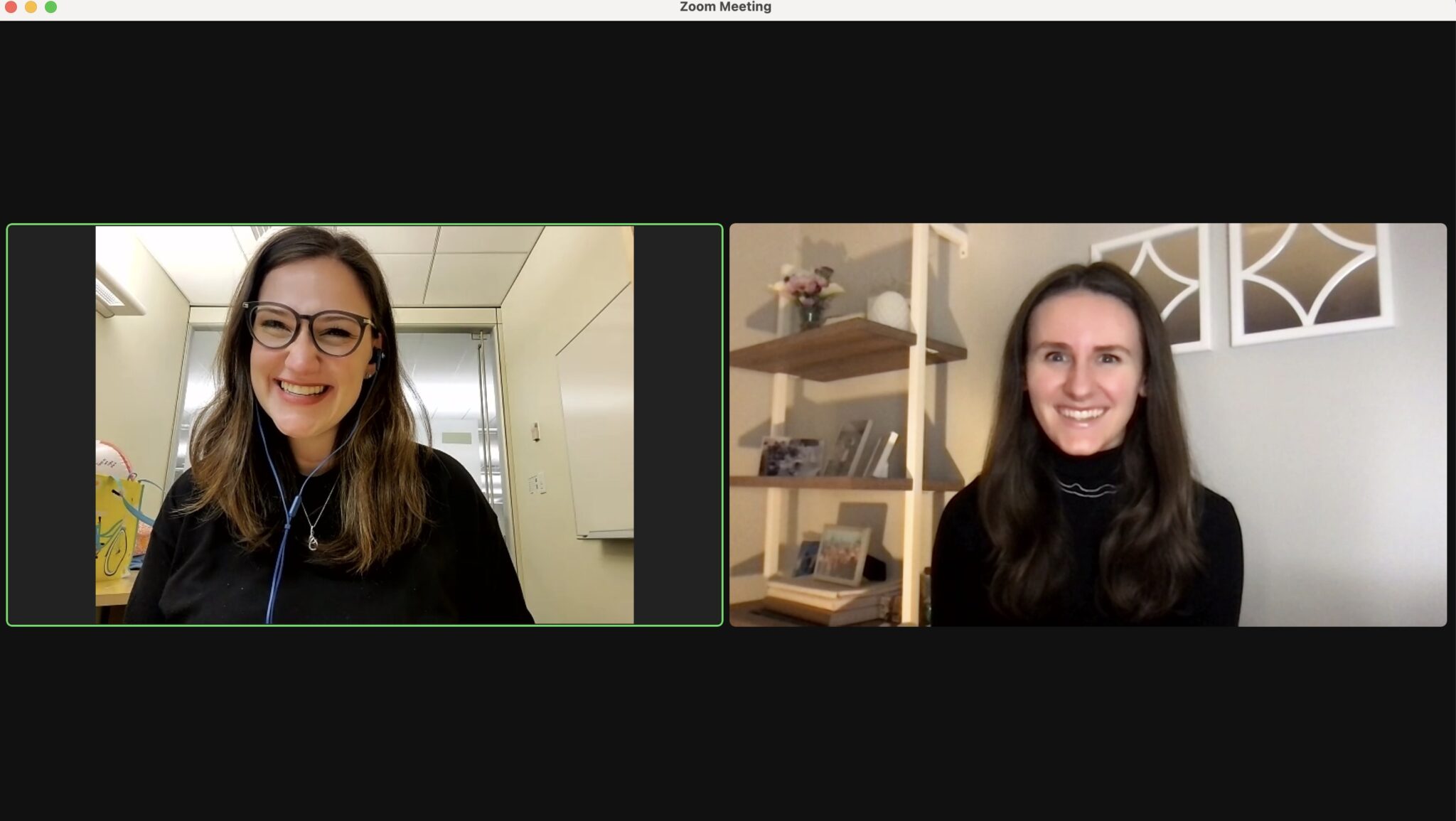Grief can be isolating at any age — and that certainly includes young adulthood. Through our 20s and even 30s, friends tend to play a leading role in our lives. But they often can’t relate to major losses like the death of a parent.
If a young person is grieving, where can they find a community who understands?
That’s where HopeHealth’s Young Adult Grief Support Group comes in, open to ages 18 to 35. Every other week, members get together virtually to talk about their experiences and support one another.
Facilitators Emma Gilbert and Kate Williams share some of the common challenges the group addresses — together.
> We’re here for you! To join the group, email CenterforHopeandHealing@HopeHealthCo.org.
“My friends don’t get it.”
A common challenge: “We only know about the nuances of grieving if we’ve experienced it ourselves. So if you lose someone in your 20s, your friends might not know how to follow up and check in,” says Kate. “Maybe they reached out at first, but now they think you should be fine.”
In the group: “We offer a support network that can relate to these unique struggles,” says Emma. “We talk a lot about social interactions, like the best friend you thought would be there for you but isn’t. How do you navigate those friendships now?”
> Related: 6 ways to help you heal after the loss of a parent
“I feel so alone.”
A common challenge: Even for people with a strong friend network, ages 18 to 35 can be a lonely time. You may have moved away from your hometown supports. You’re less likely to be living with a partner or have kids of your own. You might not have anyone checking on you regularly.
In group: “One member remembered it was an anniversary date for another participant,” says Emma. “When they asked how it was going, that person started bawling with relief. They said, ‘You’re the first person who asked me that all day.’ That’s the epitome of this group.”
“Everyone’s tired of me talking about my loved one.”
A common challenge: You naturally want to share memories and work out feelings about your loved one. But your peers and friends are focused on other things — which doesn’t leave a lot of room for reminiscing.
In the group: “We want to hear your stories. We want to hear about your loved one — the happy things and the sad things. It’s a safe space to talk with people who understand the immense value of those memories,” says Emma.
> Related: Where to put your love when you’ve lost someone special
“I wish I could share this with my loved one.”
A common challenge: From kicking off a career to decorating your first apartment, young adulthood is marked by milestone moments. That can make your loved one’s absence feel especially noticeable.
In the group: “Any time there’s a big change, grief seeps in,” says Kate. “It might be anything from, ‘I can’t watch a favorite show because it reminds me of them’ to ‘I got a car and I want to show them.’ At group, you’re on a Zoom where five other people are nodding along because they feel the same way.”
> Related: Grief support readings
“What if I’m the only one who feels this way?”
A common challenge: Grief is messy. It stirs up emotions that can feel unfamiliar, overwhelming, and even embarrassing. It’s all too easy to think that no one else could relate. But you’re not alone.
In the group: “It’s hard to put into words the magic that happens when, sure enough, someone opens up and learns what they’re feeling is completely normal,” says Emma. “Everyone supports each other and asks each other questions. They share books and podcasts. They give each other so much love.”
“We offer a safe, comfortable place to be vulnerable,” agrees Kate. “No matter how anxious you feel about coming to the group, you’ll feel supported here. The only thing you have to do is try it.”

